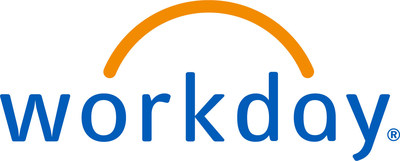New Workday Global Research: AI Agents Are Here--But Don't Call Them Boss
Workday (NASDAQ: WDAY) has released new global research revealing key insights about AI adoption in the workplace. The study, titled "AI Agents Are Here—But Don't Call Them Boss," shows that while 75% of employees are comfortable working alongside AI, only 30% would accept being managed by AI agents.
The research highlights that 82% of organizations are expanding their use of AI agents, with trust levels increasing significantly with exposure. In the finance sector, 76% of workers believe AI agents will help address professional shortages, with top applications including forecasting, budgeting, financial reporting, and fraud detection.
However, concerns persist about AI implementation, with 48% of employees worried about increased pressure and decline in critical thinking, and 36% concerned about reduced human interaction.
Workday (NASDAQ: WDAY) ha pubblicato una nuova ricerca globale che rivela importanti informazioni sull'adozione dell'IA sul posto di lavoro. Lo studio, intitolato "AI Agents Are Here—But Don't Call Them Boss," mostra che mentre il 75% dei dipendenti si sente a proprio agio a lavorare insieme all'IA, solo il 30% accetterebbe di essere gestito da agenti IA.
La ricerca evidenzia che l'82% delle organizzazioni sta ampliando l'uso degli agenti IA, con livelli di fiducia che aumentano significativamente con l'esposizione. Nel settore finanziario, il 76% dei lavoratori ritiene che gli agenti IA contribuiranno a colmare le carenze professionali, con applicazioni principali quali previsione, budgeting, rendicontazione finanziaria e rilevamento delle frodi.
Tuttavia, permangono preoccupazioni sull'implementazione dell'IA: il 48% dei dipendenti teme un aumento della pressione e un calo del pensiero critico, e il 36% è preoccupato per una diminuzione dell'interazione umana.
Workday (NASDAQ: WDAY) ha publicado una nueva investigación global que revela ideas clave sobre la adopción de la IA en el lugar de trabajo. El estudio, titulado "AI Agents Are Here—But Don't Call Them Boss," muestra que mientras el 75% de los empleados se siente cómodo trabajando junto a la IA, solo el 30% aceptaría ser gestionado por agentes de IA.
La investigación destaca que el 82% de las organizaciones está ampliando el uso de agentes de IA, con niveles de confianza que aumentan significativamente con la exposición. En el sector financiero, el 76% de los trabajadores cree que los agentes de IA ayudarán a afrontar la escasez de profesionales, con aplicaciones principales como previsión, presupuestación, informes financieros y detección de fraudes.
Sin embargo, persisten preocupaciones sobre la implementación de la IA, con el 48% de los empleados preocupado por el aumento de la presión y la disminución del pensamiento crítico, y el 36% preocupado por la reducción de la interacción humana.
Workday (NASDAQ: WDAY)가 직장에서의 인공지능 도입에 관한 주요 인사이트를 담은 새로운 글로벌 연구 결과를 발표했습니다. "AI Agents Are Here—But Don't Call Them Boss,"라는 제목의 이 연구는 직원들의 75%가 AI와 함께 일하는 데 편안함을 느낀다고 밝히는 반면, 단지 30%만이 AI 에이전트에게 관리받는 것을 수용할 것이라고 보여줍니다.
연구는 조직의 82%가 AI 에이전트 활용을 확대하고 있다고 강조하며, 노출이 늘수록 신뢰 수준도 상당히 높아진다고 합니다. 금융 분야에서는 76%의 근로자가 AI 에이전트가 인력 부족 문제 해결에 도움이 될 것이라고 생각하며, 주요 적용 분야로 예측, 예산 편성, 재무보고 및 사기 탐지가 꼽혔습니다.
그러나 AI 도입에 대한 우려도 남아 있습니다. 48%의 직원은 업무 압박 증가와 비판적 사고 저하를 걱정하며, 36%는 인간 간 상호작용 감소를 우려하고 있습니다.
Workday (NASDAQ: WDAY) a publié une nouvelle étude mondiale révélant des informations clés sur l'adoption de l'IA au travail. L'étude, intitulée "AI Agents Are Here—But Don't Call Them Boss," montre que si 75 % des employés se disent à l'aise pour travailler aux côtés de l'IA, seuls 30 % accepteraient d'être gérés par des agents IA.
La recherche souligne que 82 % des organisations étendent leur utilisation des agents IA, la confiance augmentant nettement avec l'exposition. Dans le secteur financier, 76 % des travailleurs estiment que les agents IA aideront à pallier les pénuries de main-d'œuvre, avec des usages principaux tels que la prévision, la budgétisation, le reporting financier et la détection des fraudes.
Cependant, des inquiétudes subsistent concernant la mise en œuvre de l'IA : 48 % des employés craignent une augmentation de la pression et une baisse de l'esprit critique, et 36 % redoutent une réduction des interactions humaines.
Workday (NASDAQ: WDAY) hat eine neue globale Studie veröffentlicht, die wichtige Erkenntnisse zur KI-Einführung am Arbeitsplatz liefert. Die Untersuchung mit dem Titel "AI Agents Are Here—But Don't Call Them Boss," zeigt, dass zwar 75 % der Mitarbeitenden sich wohl dabei fühlen, mit KI zusammenzuarbeiten, jedoch nur 30 % akzeptieren würden, von KI-Agenten geführt zu werden.
Die Forschung hebt hervor, dass 82 % der Organisationen den Einsatz von KI-Agenten ausweiten, wobei das Vertrauen mit wachsender Erfahrung deutlich zunimmt. Im Finanzsektor glauben 76 % der Beschäftigten, dass KI-Agenten helfen werden, den Fachkräftemangel zu lindern, mit wichtigen Anwendungsbereichen wie Prognosen, Budgetierung, Finanzberichterstattung und Betrugserkennung.
Dennoch bestehen Bedenken hinsichtlich der KI-Implementierung: 48 % der Mitarbeitenden befürchten erhöhten Druck und eine Abnahme des kritischen Denkens, und 36 % sorgen sich um weniger menschliche Interaktion.
- 82% of organizations are expanding their use of AI agents, showing strong adoption
- 75% of employees are comfortable working with AI agents, indicating positive workforce reception
- 95% trust rate among organizations with advanced AI implementation
- 76% of finance workers see AI as solution to industry professional shortages
- 90% of employees believe AI agents will improve productivity
- Only 30% of employees comfortable with AI management, showing significant resistance
- 48% worried about increased pressure and decline in critical thinking
- 36% concerned about reduced human interaction
- Only 24% comfortable with AI agents operating without human knowledge
- 26% still believe AI agents are overhyped
Insights
Workday's research reveals employee boundaries with AI agents, highlighting strategic challenges and opportunities for its AI-focused business model.
Workday's latest research highlights a crucial psychological boundary in workplace AI adoption: while
The research findings reveal a significant tension between rapid AI adoption—with
Particularly noteworthy is the research finding that AI trust correlates strongly with exposure—jumping from
For investors, these insights illuminate how Workday is positioning itself at the intersection of AI capability and human comfort—developing technology that augments rather than replaces human judgment. The company appears to be building a competitive advantage through AI solutions that respect the boundaries employees are clearly establishing.
Research Reveals
Realizing the Full Power of AI Agents Hinges on Transparency and Prioritizing Human Empowerment
The research underscores that while widespread optimism is driving the rapid adoption of AI agents –
"We're entering a new era of work where AI can be an incredible partner, and a complement to human judgement, leadership, and empathy," said Kathy Pham, vice president, AI, Workday. "Building trust means being intentional in how AI is used and keeping people at the center of every decision."
Key findings from the report include:
- AI as Co-Pilot, Not Commander: Three out of four employees are highly comfortable with AI agents working alongside them and recommending new skills—but only
30% are comfortable with an AI agent managing them. A mere24% are comfortable with AI agents operating in the background without human knowledge. Establishing clear boundaries for AI is key to building employee trust and driving greater adoption. - Exposure to AI Agents Drives Trust: While more than one-quarter of respondents still believe agents are overhyped, trust in agents rises dramatically with increased use. For instance, only
36% of those exploring AI agents trust their organization to use them responsibly, but that number jumps to95% among those further along. Direct experience with AI agents builds confidence. - The Double-Edged Sword of AI Productivity: Nearly
90% of employees believe AI agents will help them get more done, but many are also concerned that these productivity gains will lead to increased pressure (48% ), a decline in critical thinking (48% ) and less human interaction (36% ). This underscores the need for thoughtful implementation that prioritizes employee well-being. - Distinct Roles for Agents and Humans: Most see agents as important teammates, but not full members of the workforce. Trust in AI also depends on the task; it's highest for IT support and skills development and lowest for sensitive areas like hiring, finance, and legal matters, underscoring the need for human oversight and accountability.
- Finance Sees Big Potential: With the industry facing a shortage of CPAs and finance professionals,
76% of finance workers believe AI agents will help close the gap and only12% are worried about job loss. The top uses for AI agents in Finance include forecasting and budgeting (32% ), financial reporting (32% ), and fraud detection (30% ).
This research underscores a crucial path forward: to harness the potential of AI, organizations must focus on building trust through transparency and empowering their people. This isn't just about deploying new technology. It's about thoughtfully designing a future where AI agents enhance human capabilities, enabling a more productive and fulfilling work experience for all.
For additional information
- Read the full report, "AI Agents Are Here—But Don't Call Them Boss."
- Discover more about the implications of AI agents on the global workforce, "The Secret to AI Optimism and Adoption is Setting Boundaries."
- Hear more about the evolving mindset of the Chief Work Officer, "The Chief Work Officer: Leading the Human-AI Frontier."
About The Report
Our findings are based on a global survey of 2,950 full-time decision-makers and software implementation leaders across three key regions:
About Workday
Workday is the AI platform for managing people, money, and agents. The Workday platform is built with AI at the core to help customers elevate people, supercharge work, and move their business forever forward. Workday is used by more than 11,000 organizations around the world and across industries – from medium-sized businesses to more than
© 2025 Workday, Inc. All rights reserved. Workday and the Workday logo are registered trademarks of Workday, Inc. All other brand and product names are trademarks or registered trademarks of their respective holders.
Forward-Looking Statements
This press release contains forward-looking statements including, among other things, statements regarding Workday's plans, beliefs, and expectations. These forward-looking statements are based only on currently available information and our current beliefs, expectations, and assumptions. Because forward-looking statements relate to the future, they are subject to inherent risks, uncertainties, assumptions, and changes in circumstances that are difficult to predict and many of which are outside of our control. If the risks materialize, assumptions prove incorrect, or we experience unexpected changes in circumstances, actual results could differ materially from the results implied by these forward-looking statements, and therefore you should not rely on any forward-looking statements. Risks include, but are not limited to, risks described in our filings with the Securities and Exchange Commission ("SEC"), including our most recent report on Form 10-Q or Form 10-K and other reports that we have filed and will file with the SEC from time to time, which could cause actual results to vary from expectations. Workday assumes no obligation to, and does not currently intend to, update any such forward-looking statements after the date of this release, except as required by law.
Any unreleased services, features, or functions referenced in this document, our website, or other press releases or public statements that are not currently available are subject to change at Workday's discretion and may not be delivered as planned or at all. Customers who purchase Workday services should make their purchase decisions based upon services, features, and functions that are currently available.
![]() View original content to download multimedia:https://www.prnewswire.com/news-releases/new-workday-global-research-ai-agents-are-herebut-dont-call-them-boss-302527741.html
View original content to download multimedia:https://www.prnewswire.com/news-releases/new-workday-global-research-ai-agents-are-herebut-dont-call-them-boss-302527741.html
SOURCE Workday Inc.








